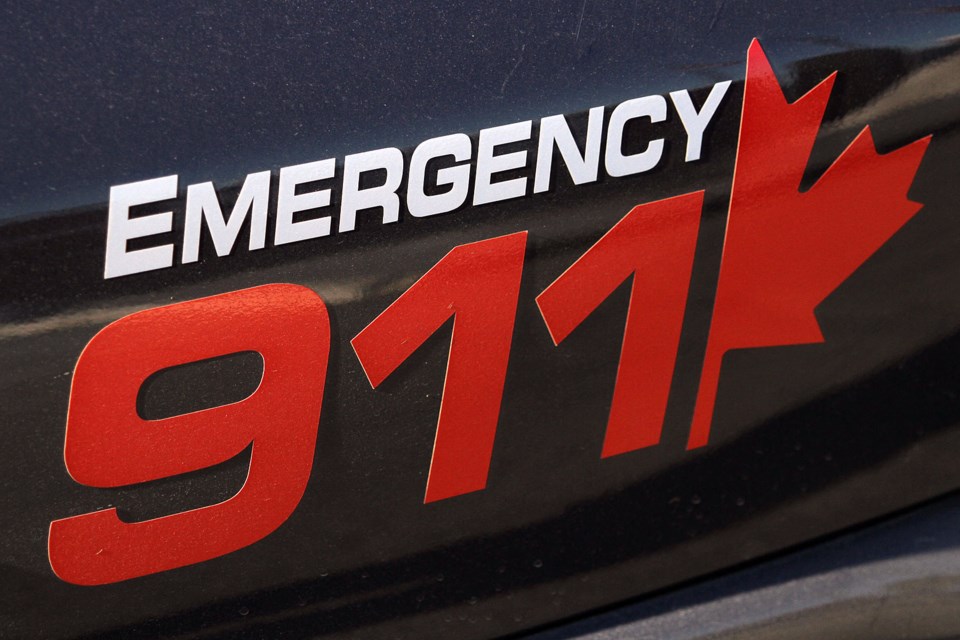THUNDER BAY - Members of the public are raising concerns about the Thunder Bay Police Service’s response to 911 calls and a lack of foot patrols in the downtown cores.
On Tuesday, the Thunder Bay Police Services Board heard a deputation from Bill Woods regarding responses to 911 calls.
“The current state of Thunder Bay’s police service and emergency/911 services as a whole are broken and unacceptable,” Woods said in his deputation.
“As citizens of Thunder Bay we deserve better and deserve to be able to call in a state of emergency and feel safe and confident that should they be in dire need that it will be followed up on in a timely manner.”
Woods went on to say that he is not placing the blame on the officers themselves and acknowledged issues of understaffing and the increased level of crime in the city due to drugs and gang activity.
“We have people in an emergency calling 911 and being told no officers are available or taking hours for police to respond if you are lucky, if not the next day,” Woods said.
“I understand there will always be a need to prioritize calls but for people in need or in an actual emergency, needing to wait hours if not days is unacceptable in my eyes and many others I have talked to.”
Thunder Bay Police Service deputy chief Ryan Hughes said all 911 calls are prioritized based on severity. Hughes used the example of an assault taking place.
“If the assault has stopped and the perpetrators have left and the victim is awaiting police and a priority call comes in, that will take priority for other officers. But the victim will be spoken to,” he said.
“When our comms centre receives a 911 call, if there is an available unit, they will be sent. If there are multiple 911 calls, they will be prioritized based on severity.”
This past weekend alone, the Thunder Bay Police Service received 350 calls for service from Friday night to Tuesday morning.
During the meeting, Thunder Bay mayor and police services board member Ken Boshcoff said the size of the area the Thunder Bay Police Service patrols is larger than some countries and that a large amount of resources is being allocated for policing and social services in the city.
“I had a call from citizen who didn’t feel safe walking their dog in a neighbourhood,” Boshcoff said during the meeting. He then asked Hughes if there is “something we can do in a general way to let people know that this isn’t a dangerous city in 99 per cent of the areas?”
When asked about perceptions of safety within the city in relation to it having one of the highest homicide and crime severity rates in the country, Boshcoff said Thunder Bay is by and large a safe community to live when compared to other parts of the world and country.
“There are stats and there are numbers. Remember if we have three murders here, we have a higher rate nationally than Toronto with 297. Because it’s based on per thousands of population. To me, I think our police are doing a very good job and our community is as safe as a community can be,” he said.
“We have to respect that people have fears. But we also have to understand that people are learning how to protect themselves and stay away from areas they think might be dangerous.”
Boshcoff also questioned how many 911 calls the police service receives that may not actually constitute an emergency.
Hughes said there are other ways to reach police to report non-emergency issues or crimes, such as calling the police headquarters front desk or online reporting. But both Hughes and Boshcoff agreed that perhaps more education is needed in the public to know when it is most appropriate to call 911.
“We have numerous groups and organizations that are trying to pass that education on. I think the kids in school are being well trained of not taking any chances,” Boshcoff said.
“It’s really a process of education as much as anything else. It’s a community effort. Hopefully over the next number of years we will be able to change the temperature on that and have people feel the confidence of community safety.”
Hughes said he will follow up on this.
“I will be speaking with our communications director regarding public education about 911 calls and what they are,” he said, adding that it can also be raised during town hall meetings with the community and ward meetings.
A business owner in the downtown north core also sent a letter to the police services board about safety concerns in the two downtown cores and the possibility of reinstating foot patrols.
Hughes said there are both benefits and drawbacks to having officers patrol the downtown cores on foot.
“It makes the business owners feel comfortable and people on the street feel more comfortable,” he said. “The drawback of that is those officers are unavailable in other areas. If they do get a demand call they will have to go back to their car and travel to another area of the city.”
Hughes added that a large number of calls in the downtown cores are related to mental health and addiction issues.
“That will tie our officers up, taking them away from other demand calls,” he said. “We fully support our partnering agencies for funding so they can come out and be able to deal with mental health issues.”
